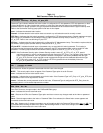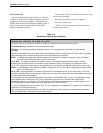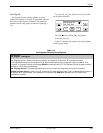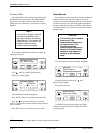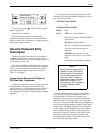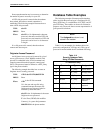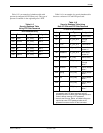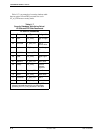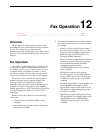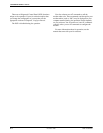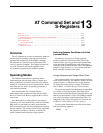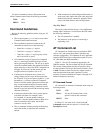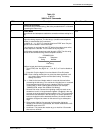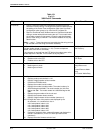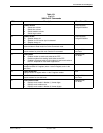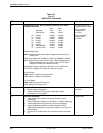
12-13980-A2-GB30-20 November 1996
Fax Operation
Overview 12-1. . . . . . . . . . . . . . . . . . . . . . . . . . . . . . . . . . . . . . . . . . . . . . . . . . . . . . . . . . . . . . . . . . . . . . . . .
Fax Operation 12-1. . . . . . . . . . . . . . . . . . . . . . . . . . . . . . . . . . . . . . . . . . . . . . . . . . . . . . . . . . . . . . . . . . . . . .
Overview
The procedures for sending and receiving facsimile
documents with your modem depend on the fax software
you use. This chapter does not contain specific
procedures, but rather information that may make it easier
for you to use the documentation that came with your fax
software.
Fax Operation
Your modem, in combination with your computer and
fax software, is capable of emulating the functions of a
fax machine. Y
ou can use it to send and receive fax files
in communication with another fax modem, or with a
standard fax machine. These fax files are images turned
into the sort of data that can be stored in your computer.
Fax machines and fax modems use special protocols
different from those used by standard modems. The
device you intend to communicate with must be
compatible with your modem, which means that it must
be capable of using the same protocol. Y
our 3800Plus
modem supports Class 1 (EIA 578) and Class 2 (EIA/TIA
SP-2388) Group III fax, using V.17, V.29, or V.27ter
modulations.
Before you can send or receive a fax, the following
must be true:
• You must have fax software installed on your
computer.
• Your modem must be online with a compatible fax
modem or fax machine.
• You must have configured your modem according
to the specifications of your fax software manual.
For example:
— Some fax software requires that the modem
have Auto-Answer disabled. Y
ou can set this
using the AutoAnswerRing# configuration
option under the Line Dialer branch, or by
issuing the A
TS0=0 command.
— Some fax software requires that the modem use
software flow control. Y
ou can set this using
the FlwCntlofDTE and FlwCntlofMdm
configuration options under the
V.42/MNP/Buffer branch, or by issuing an
AT\Q1 command.
— DTR Action should be set for standard
RS-232D operation. Use the Stndrd_RS232
setting of DTR Action (in the DTE Interface
configuration options group), or the AT&D2
command.
— LSD (Line Signal Detect) Control should be set
for standard RS-232D operation. Use the
Stndrd_RS232 setting of LSD Control (in the
DTE Interface configuration options group), or
the A
T&C1 command.
—
Data should be buf
fered during Error Control
(EC) negotiation. Use the Enable setting of EC
Negotiate Bufr (in the V.42/MNP/Buffer
configuration options group), or the AT\C1
command.
12



